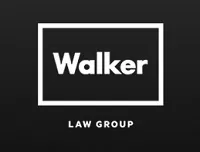Last year the NSW Government brought in the Workers Compensation Amendment (Consequential COVID-19 Matters) Regulation 2020 and Section 19B of the Workers Compensation Act NSW 1987.
The law created a presumption that a worker who contracts COVID-19 and who works in certain specified industries such as the retail industry, healthcare sector, disability and aged care facilities, would be presumed to have contracted COVID at work. [For a full list, see below]
In a real credit to Parliament this law was given the universal support and endorsement by not only the Government but the Greens, Labour and others.
Parliament had a concern that there could be liability issues and subsequently delays for workers who contracted COVID-19 whilst undertaking frontline work that our society needs to keep occurring. Parliament wanted to avoid these insurance claims complications.
This was and is a very good law.
Last week Principal Member, John Harris determined the case of Sara v G & S Sara Pty Ltd [2021] NSWPIC 286.
This is the first case involving a dispute in the Personal Injury Commission where icare has declined liability for a claim where the worker involved caught COVID-19.
The facts
- Mr Sara was a working director in a business that sold dental equipment and technology.
- The business was part of a group that also operated in the USA.
- Mr Sara sought and obtained permission to go New York last year from the Australian Government.
- The travel was to promote the wares of the business to ensure his business, which employed 15 people in NSW, could continue.
- The work fell into the industry categories of retail and healthcare
- On the flight to NY he caught COVID and after a few days in NY he was admitted to hospital.
- Very sadly, Mr Sara eventually succumbed to the illness and died.
- At some point, Mr Sara's estate brought a fatality claim which icare declined.
The issues
icare's main argument was that Mr Sara wasn't a 'worker' for the NSW business they insured when he contracted COVID-19.
They argued instead he was working for a different part of the group that was based in the USA.
Flowing out of that, icare disputed Mr Sara was in the course of his employment with the insured NSW business when he contracted COVID-19.
icare also argued that employment was neither the main contributing factor or a substantial contributing factor to acquiring COVID-19.
The decision
Principal Member Harris carefully and thoroughly examined the law that applies to being a 'worker' and applied it to the facts of Mr Sara's situation.
Harris was satisfied the evidence 'overwhelmingly establishes that Mr Sara was an employee.' (P. 170)
After finding that Mr Sara was a 'worker,' it was a relatively straightforward decision to apply s19B and find that the disease was contracted in Mr Sara's employment.
There was no dispute that the work Mr Sara did was in one of the listed industry categories of retail and healthcare.
There was no evidence to rebut the presumption; all parties agreed that Mr Sara had contracted the disease whilst flying to NY for the purposes of his work.
Accordingly, the presumption that Mr Sara had contracted COVID in the course of his employment was applied and a finding in favour of his estate.
Why this matters?
Whilst icare had doubts Mr Sara was a 'worker' when he contracted COVID-10, once this aspect was confirmed it was relatively straightforward to apply the COVID-19 presumption law to lead to an acceptance of the claim.
Any NSW worker who catches COVID-19 should be presumed to have caught it at work if they work in one of the prescribed industries.
Whilst this presumption can be rebutted, the Government's intention in bringing the law in is that a worker who contracts COVID-19 and works in one of these listed industries should enjoy the full support of the insurer in helping them bounce back.
If you catch COVID-19 whilst at work and need assistance with your claim please reach out to us.
Full list of industry sectors identified:-
- the retail industry (other than businesses providing only on-line retail),
- the health care sector, including ambulance officers and public health employees,
- disability and aged care facilities,
- educational institutions, including pre-schools, schools and tertiary institutions (other than establishments providing only on-line teaching services),
- police and emergency services (including fire brigades and rural fire services),
- refuges, halfway houses and homeless shelters,
- passenger transport services,
- libraries,
- courts and tribunals,
- correctional centres and detention centres,
- restaurants, clubs and hotels,
- the construction industry,
- places of public entertainment or instruction (including cinemas, museums, galleries, cultural institutions and casinos),
- the cleaning industry
- cafes
- supermarkets
- funeral homes
- childcare facilities.
The content of this article is intended to provide a general guide to the subject matter. Specialist advice should be sought about your specific circumstances.


